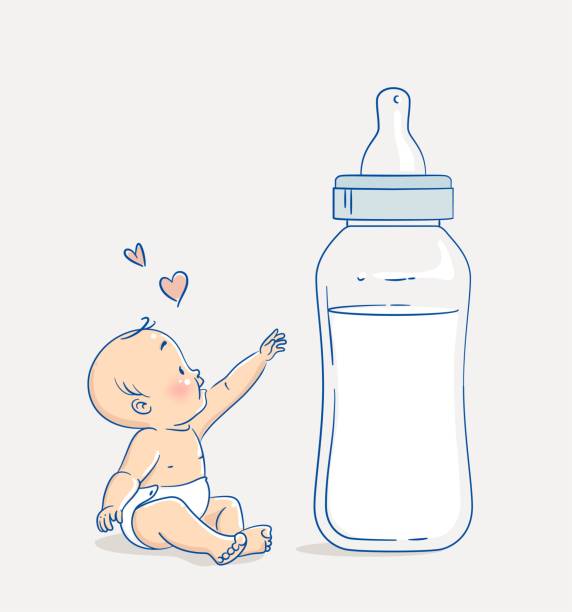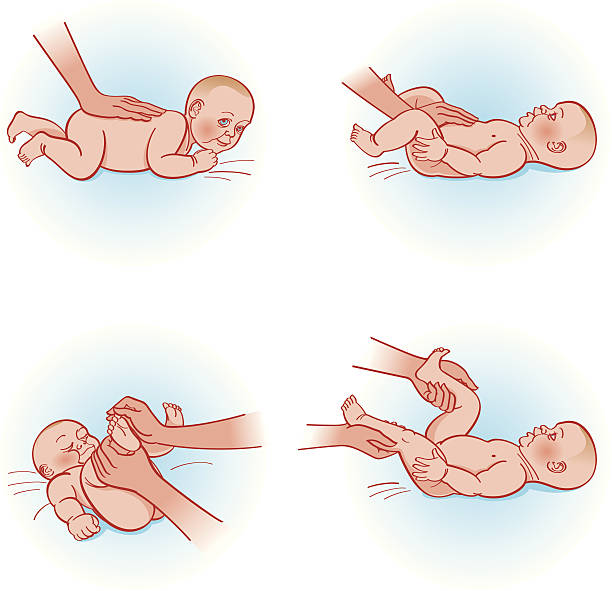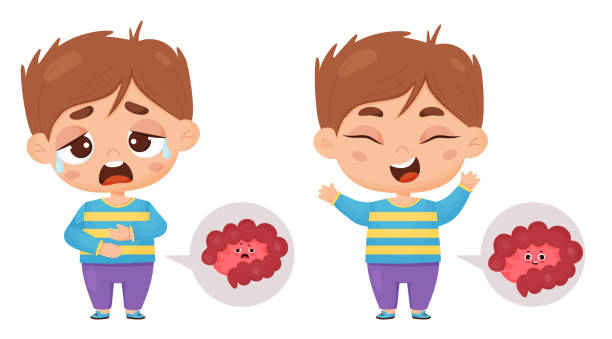Introduction
Today in this article we discuss Understanding Your Baby’s Digestive Health: Tips for Parents. A baby’s health and well-being is every parent’s first priority, but for many parents, understanding their little one’s appetite and digestion can be a daunting task. For new parents, it’s important to be aware of and properly monitor your baby’s digestive health, as it has a huge impact on the baby’s overall health. This article will provide you with some good tips and information that will help you improve your child’s digestive health and resolve their issues.
1. Baby’s Digestive Health Start
A baby’s digestive health concerns us from the time it comes into the world. In the first month, the baby’s digestive system continues to develop and during this period they face some common problems, like colic, gas and constipation. These problems are usually normal, but it is important to manage them so that the baby feels comfortable. Parents should understand that the baby’s digestive system is still in the developing stage and they should be patient and wise during this process.
2. Milk Choice and Digestive Health

Every baby’s digestive system is different and it is important to understand which milk is best for your baby. If you are breastfeeding your baby, it is best for the baby, as breast milk is easily digested and also strengthens the baby’s immune system. If you are using formula milk, there are a few things to keep in mind when choosing a formula, such as the consistency of the milk and observing the baby’s reactions. Every baby’s milk needs are different, so it’s important to observe carefully.
3. Experiencing digestive problems in the child
One of the biggest worries for new born is their baby’s digestive problems. These problems are experienced immediately after drinking milk or shortly after. Children often experience gas, bloating, and constipation. If your baby is crying frequently or has a tight tummy, these could be signs that he has a problem with gas or constipation. It is important that parents understand their baby’s digestive problems closely and try different remedies to give them relief.
4. Importance of burping
Burping is essential for a baby’s digestive health. When a baby drinks milk, it also swallows air, which causes gas in its stomach. After feeding, the baby should burp until the air is expelled and the baby does not have gas or discomfort in the stomach. After every feeding, the baby should be burped by Tariq Sahib and he/she should have a regular part to maintain the baby’s digestive health.
5. Baby’s Massage

Abdominal massage can be a boon for a baby’s digestive system. It helps release gas trapped in baby’s stomach and makes them feel relaxed. Massaging the abdomen in light circular motions, directed in the direction of the baby’s digestive system, provides relief from gas and bloating issues. Additionally, a warm bath can also help soothe a baby’s digestive system.
6. Introduction of solid food
When your baby is six months old, his digestive system is ready for solid foods. But it is important to introduce solid foods gradually. First small amounts of easily digestible foods should be given, such as mashed fruits and cooked vegetables. It is important to observe if your child is reacting to a particular food and if he is allergic to any food we should avoid the food.
7. Water consumption
When your baby starts taking solid food, we should also start giving water from time to time. Water keeps their digestive system active and prevents constipation. But it is important to remember that the baby does not need water for the first six months. Drinking water with solid food can further improve their digestive health.
8. Food allergy symptoms
Some children also suffer from food allergies, which directly affect their digestive health. You should closely monitor your baby’s response to a change in diet. If your child experiences vomiting, rash, or diarrhea after eating a certain food, these may be signs of a food allergy. In such a case, you should consult your doctor and we should eliminate the food from the diet.
9. Benefits of regular bowel movements
Your baby’s regular bowel movements can tell a lot about digestive health. If your baby is passing stools on a daily basis, this is a healthy sign. But if he has constipation, it can be a cause of concern for the parents. Every child’s bowel movement routine is different, but regularity continues to be maintained.
10. Role of probiotics
Probiotics are healthy bacteria that help balance your baby’s digestive system. These bacteria improve your baby’s gut health and protect them from issues like diarrhea or constipation. If your baby is formula-fed, you can try a formula with probiotics or take probiotic supplements with your doctor’s advice.
11. Importance of food schedule

Your baby’s feeding schedule has a direct impact on digestive health. Maintaining a regular feeding schedule keeps baby’s digestive system active and smooth. The feeding intervals should not be too long and it is necessary to burp the baby after each feeding so that his digestive system can work properly.
12. Healthy weight gain of the child
Healthy weight gain is an important indicator of your baby’s overall health and digestive health. If your baby is gaining weight, it means that his digestive system is working properly. But if you feel that your baby is gaining weight slowly or losing weight, it can be an alarming sign that should prompt the parents to consult a doctor.
13. Regular consultation with doctor
Regular counseling for your child’s health and especially digestive health. You should have routine check-ups with your doctor and get his opinion on the digestive issues of the baby. This is especially important when you feel that your child is having a persistent digestive problem and you cannot find a solution.
14. Food movement
The movement of food has a huge impact on a child’s digestive health. If your baby vomits straight after eating, he may have reflux or an indigestion problem. Therefore, it is important to keep the baby in an upright position for a while after eating. This practice will help in making the baby’s digestive process smooth and efficient.
15. Long-term impact of child’s digestive health
A child’s digestive health can have a long-term impact on their overall health. If their digestive health is taken care of from childhood, they will have to face digestive issues in their next life as well. Early intervention and proper health management are critical to long-term growth and development.
Final Words
Understanding Your Baby’s Digestive Health: Tips for Parents. Your child’s digestive health is an important aspect of their overall health and well-being. While this can be a bit challenging for new parents to understand and manage effectively, by following some good tips and guidelines you can give your baby a healthy start. It is important for parents to closely monitor their child’s digestive problems, and consult their doctor for any issues they encounter. Adopting the guidelines to give your child a healthy digestive system and a happy life will be beneficial for their health.
